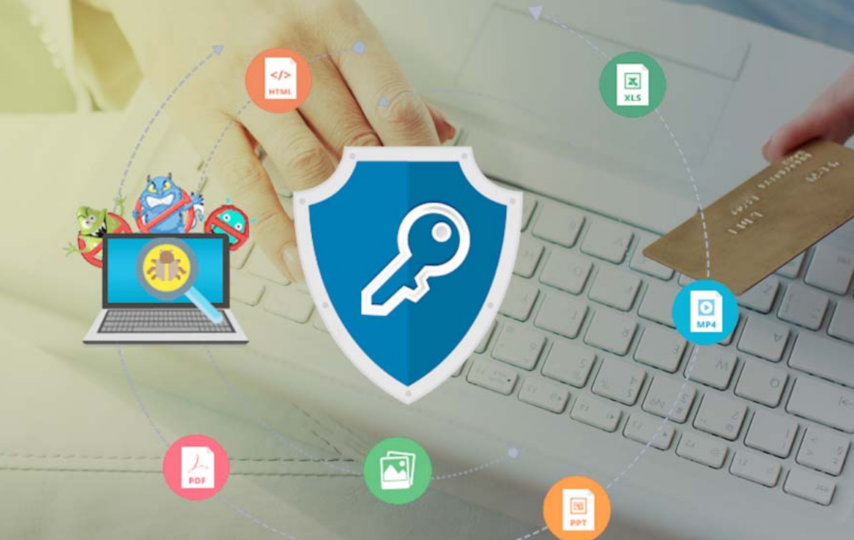Encryption plays a vital role in helping ensure that our online payments, as well as our data generally, is secure.
In short, encryption is the process by which sensitive information is converted into code. This means if someone does access that data, they’re unable to understand it.
In this guide, we take a deeper look at encryption technology. We look at examples of different online payment platforms that utilize it, and examine the benefits it brings.
First, let’s look at what encryption is and how it works.
What is encryption and how does it work?
Encryption is a sophisticated method of converting sensitive information into code to prevent anyone from utilizing it.
To operate this technology, complex mathematical algorithms are required to convert data into an unintelligible format. This means that if a cybercriminal managed to hack a company’s system, any encrypted files they did access would be incomprehensible.
It’s possible to decrypt data, but specialized codes are required and some systems can have security features that delete or lock the data if those codes are improperly entered.
If you’re trying to make an online payment, one important thing to check on the website is the URL. To the left of the URL should be a padlock icon. If this padlock is locked, it means the site is using encryption to secure your data. If you can’t see this icon, or if you get a warning as you enter a page that it may be insecure, you should be cautious.
As we’ll see below, encryption has helped businesses and industries around the globe to improve their systems. One industry that’s worth a particular mention is the online casino market.
Many online betting sites such as Ultra-Casino offer their players some of the highest levels of encryption available. When you consider how much money some of these gambling companies process, you can understand why they would be targeted by cybercriminals. As a result, online casinos need robust systems of encryption – this gives their customers vital peace of mind.
The benefits of using encryption online for payments
Encryption technology has been widely adopted in the age of the internet, especially when it comes to securing payments.
There are several reasons for this, and they lie in the benefits that encrypted data bring:
- Encryption ensures true anonymity and protection. Once your data has been encrypted, the likes of your bank details, transaction information and name and address cannot be accessed unless those files are safely decrypted.
- The key benefit to encryption is that it prevents any unauthorized parties from being able to use your data. Even if a cybercriminal obtains the files, they’ll be coded in such a way as to make them unintelligible.
- Such is the influence of encryption that it has now become a regulatory requirement. All around the globe, governments have introduced laws, such as the General Data Protection Regulation (GDPR) in Europe, that oblige organizations to secure personal and financial data. Encryption offers the means to do this.
- As a customer, if you know that a website you want to make a purchase through uses encryption, you will feel safer and happier making that transaction. This helps businesses build trust and customer loyalty.
Without encryption, a lot of people could be at risk of having their information exposed and exploited by fraudsters. Let’s take a look at some examples of different types of encryption used in online payments.
Examples of online encryption for payments
Encryption technology is an umbrella term for a range of different applications. What they all have in common is the same process of converting data into incomprehensible formats.
One of the most common types of online encryption is known as Secure Sockets Layer (SSL). All websites must use SSL encryption to help ensure that people can safely navigate their website on the server without the risk of anything going awry.
Another common technology is the interestingly named Pretty Good Privacy (PGP). This is often used in email inboxes, and though it isn’t always used in processing payments, it is frequently used in the sending of invoices.
To help achieve a stronger level of encryption, payment processors must also adhere to something called the Payment Card Industry Data Security Standard (PCI DSS). These are security standards that companies must adopt to ensure credit card information is completely safe and secure. Failure to do so could see customer data exposed, leaving the company open to fines and litigation.








